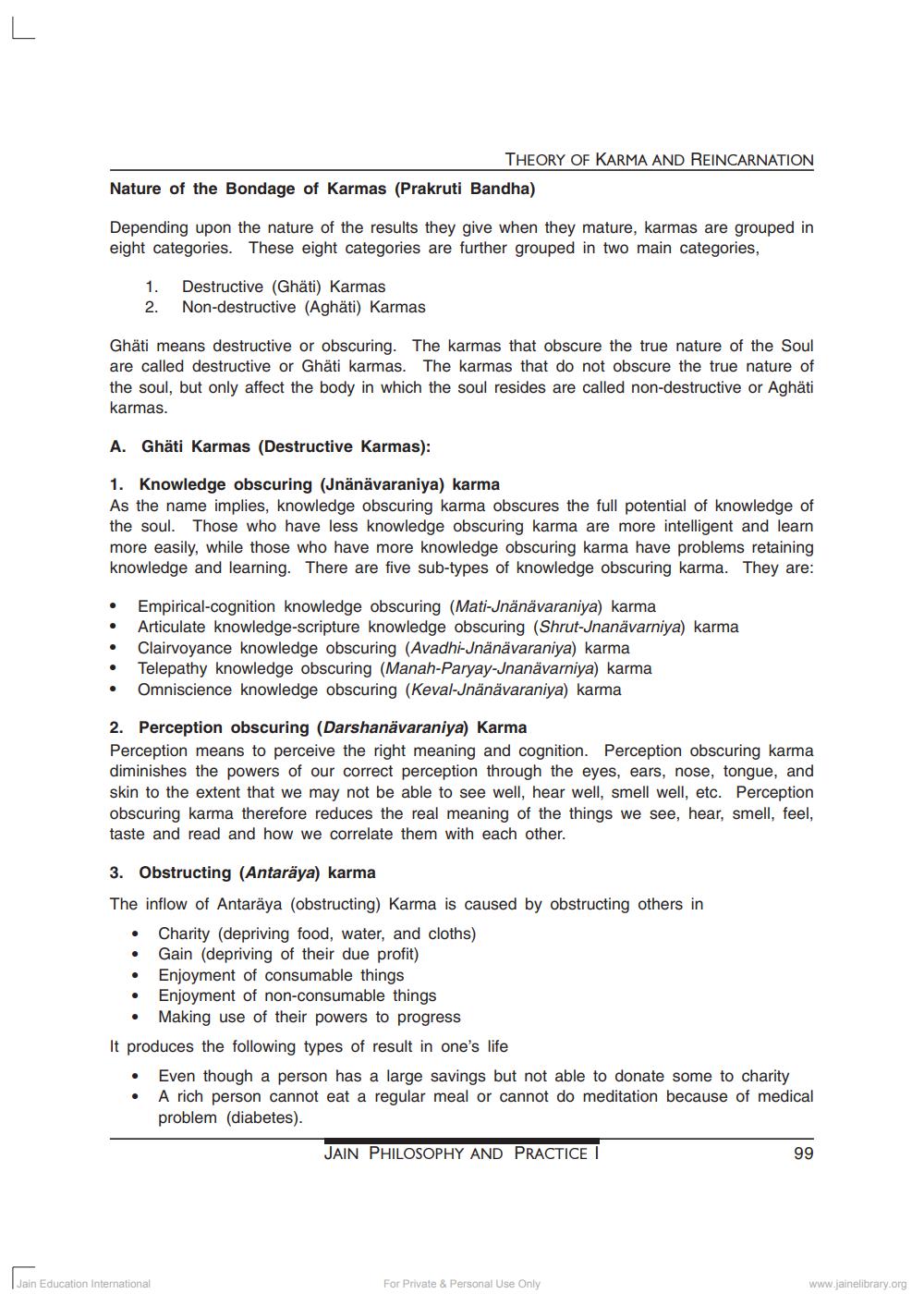________________
L
Nature of the Bondage of Karmas (Prakruti Bandha)
Depending upon the nature of the results they give when they mature, karmas are grouped in eight categories. These eight categories are further grouped in two main categories,
1. Destructive (Ghäti) Karmas
2. Non-destructive (Aghäti) Karmas
THEORY OF KARMA AND REINCARNATION
Ghäti means destructive or obscuring. The karmas that obscure the true nature of the Soul are called destructive or Ghäti karmas. The karmas that do not obscure the true nature of the soul, but only affect the body in which the soul resides are called non-destructive or Aghäti karmas.
·
A. Ghäti Karmas (Destructive Karmas):
1. Knowledge obscuring (Jnänävaraniya) karma
As the name implies, knowledge obscuring karma obscures the full potential of knowledge of the soul. Those who have less knowledge obscuring karma are more intelligent and learn more easily, while those who have more knowledge obscuring karma have problems retaining knowledge and learning. There are five sub-types of knowledge obscuring karma. They are:
Empirical-cognition knowledge obscuring (Mati-Jnänävaraniya) karma Articulate knowledge-scripture knowledge obscuring (Shrut-Jnanavamiya) karma Clairvoyance knowledge obscuring (Avadhi-Jnänävaraniya) karma Telepathy knowledge obscuring (Manah-Paryay-Jnanävamiya) karma Omniscience knowledge obscuring (Keval-Jnänävaraniya) karma
2. Perception obscuring (Darshanävaraniya) Karma
Perception means to perceive the right meaning and cognition. Perception obscuring karma diminishes the powers of our correct perception through the eyes, ears, nose, tongue, and skin to the extent that we may not be able to see well, hear well, smell well, etc. Perception obscuring karma therefore reduces the real meaning of the things we see, hear, smell, feel, taste and read and how we correlate them with each other.
3. Obstructing (Antaraya) karma
The inflow of Antaräya (obstructing) Karma is caused by obstructing others in
Charity (depriving food, water, and cloths)
Gain (depriving of their due profit)
Enjoyment of consumable things Enjoyment of non-consumable things
• Making use of their powers to progress
It produces the following types of result in one's life
• Even though a person has a large savings but not able to donate some to charity A rich person cannot eat a regular meal or cannot do meditation because of medical problem (diabetes).
Jain Education International
JAIN PHILOSOPHY AND PRACTICE I
For Private & Personal Use Only
99
www.jainelibrary.org




